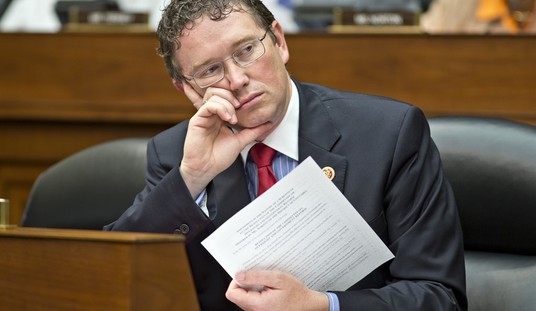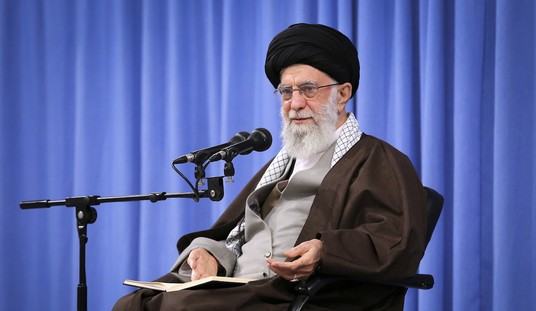Almost five years ago, Barack Obama promised to end the impasse with Iran through personal diplomacy, committing to meet with Mahmoud Ahmadinejad “without preconditions” during a 2007 Democratic presidential debate. Obama hasn’t met with Iranian leadership personally, nor has the standoff over Iran’s nuclear ambitions improved at all during his presidency. That’s the proper context for this LA Times report that highlights a shift in tone for the US on Iranian uranium enrichment, if perhaps not much of a shift in position:
In what would be a significant concession, Obama administration officials say they could support allowing Iran to maintain a crucial element of its disputed nuclear program if Tehran took other major steps to curb its ability to develop a nuclear bomb.
U.S. officials said they might agree to let Iran continue enriching uranium up to 5% purity, which is the upper end of the range for most civilian uses, if its government agrees to the unrestricted inspections, strict oversight and numerous safeguards that the United Nations has long demanded.
Such a deal would face formidable obstacles. Iran has shown little willingness to meet international demands. And a shift in the U.S. position that Iran must halt all enrichment activities is likely to prompt strong objections from Israeli leaders; the probable Republican presidential nominee, Mitt Romney; and many members of Congress.
But a consensus has gradually emerged among U.S. and other officials that Iran is unlikely to agree to a complete halt in enrichment. Maintaining an unconditional demand that it do so could make it impossible to reach a negotiated deal to stop the country’s nuclear program, thereby avoiding a military attack.
Is this really a “major concession”? Under the nuclear non-proliferation treaty, any country that offers unrestricted inspections and doesn’t produce highly-enriched uranium has the right to enrich and use uranium at low levels. The Bush administration repeatedly acknowledged that right while stressing the need to work within the parameters of the IAEA and the non-proliferation treaty. The fact that Iran started this process in secret and lied about it continuously made it pretty clear that their intent wasn’t peaceful at all, but they have always had the right to enrich uranium within the parameters of the treaty.
The difference between then and now is that the US and the other P-5 nations that have struggled to get Iran to stop building nuclear weapons insisted that Iran stop all enrichment activities until the question of their intent was resolved. That is still the position of the P-5 and Israel, although there have been some suggestions of making a concession to Iran to get their cooperation. As this concession is described by the LA Times, nothing much has changed except for the sequencing. Iran would still have to surrender any uranium enriched to the 20% mark, open all of its facilities to unrestricted inspections, and limit enrichment to 5%, far below any useful level for weapons. That was going to be the end status for any kind of verifiable Iranian cooperation anyway, and without verification, nothing would change from the current status quo, except to get worse. I doubt the Iranians will agree to this resequencing, mainly because I don’t think they will ever allow unrestricted inspections.
So why describe this as a “major concession” when it’s really just a restatement of principles that have undergirded the dispute for almost a decade — and why offer this now? I suspect that the White House feels the need for a big win in foreign affairs, and resolving the Iranian crisis peacefully would give Barack Obama a huge boost in prestige before the elections. There’s nothing inherently wrong with that, as long as Obama doesn’t give away the house in order to get a Neville Chamberlain moment. Someone oversold this concession to the LA Times as a way to paint it as a potential breakthrough, but it’s not a very significant change, which means the Iranians are likely to ignore it, or perhaps more likely to use it to make even more demands from the P-5.








Join the conversation as a VIP Member